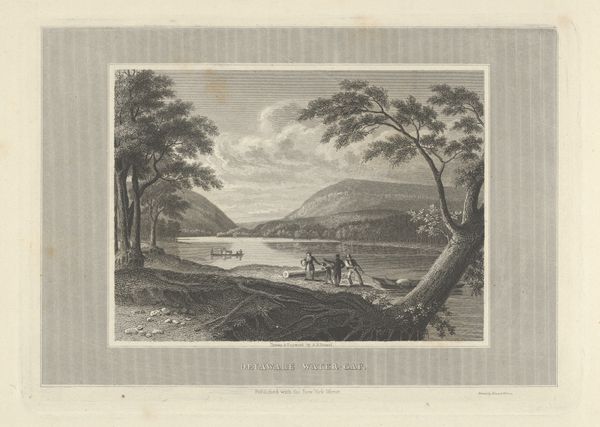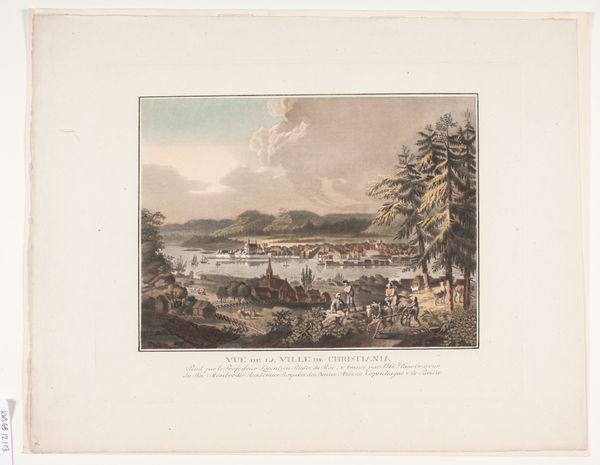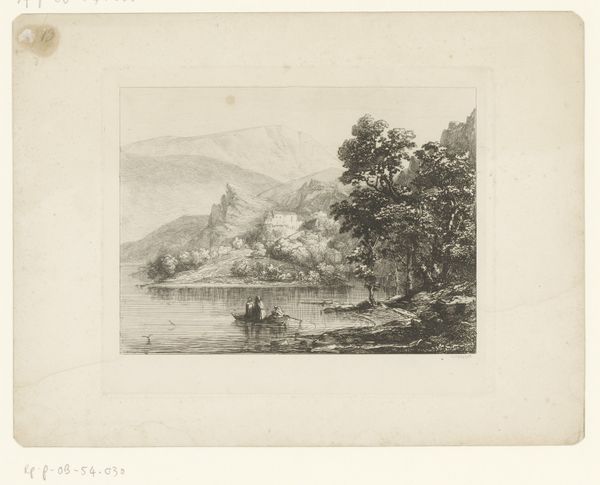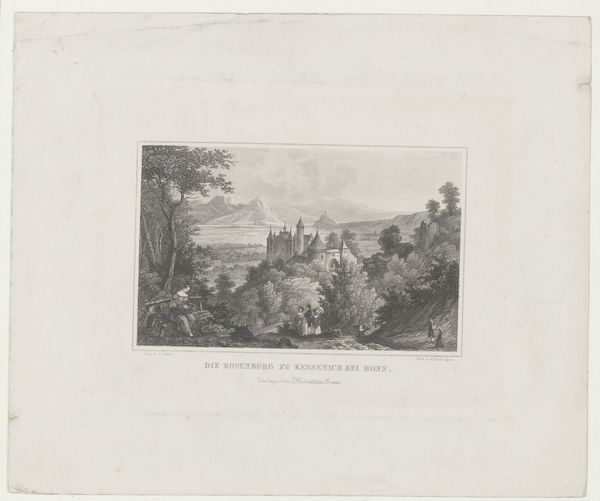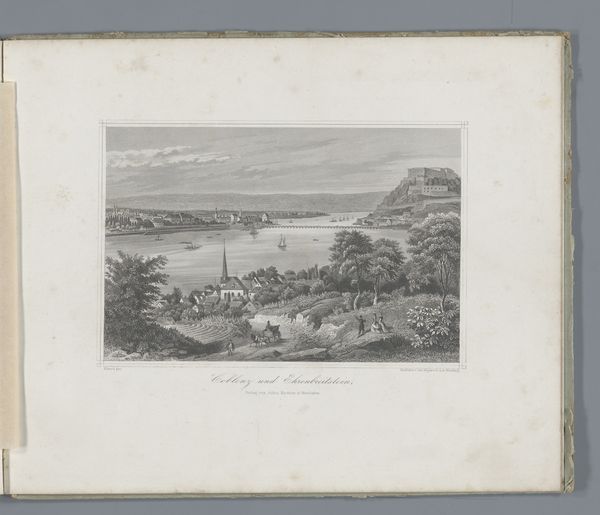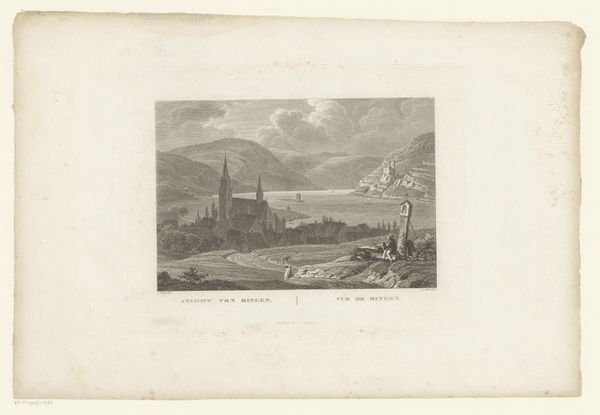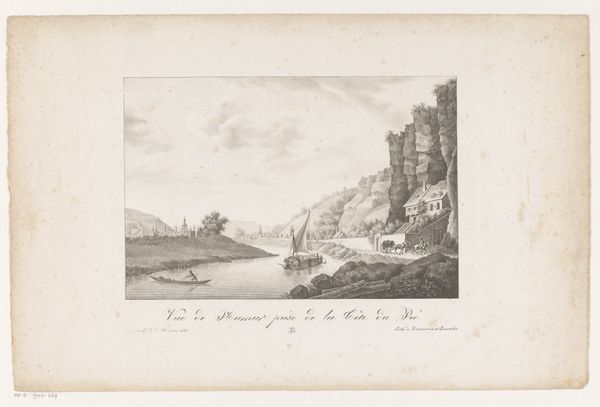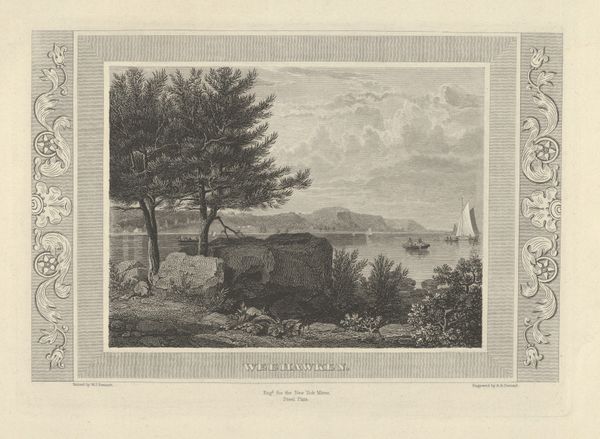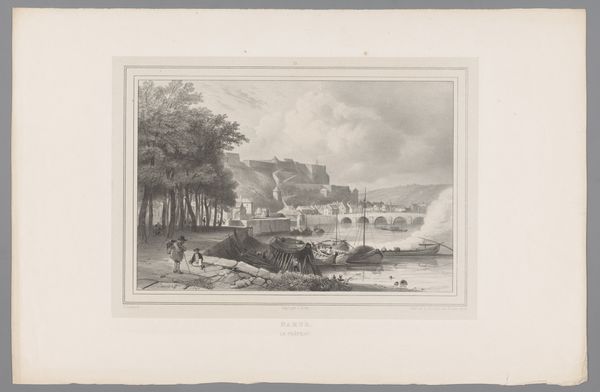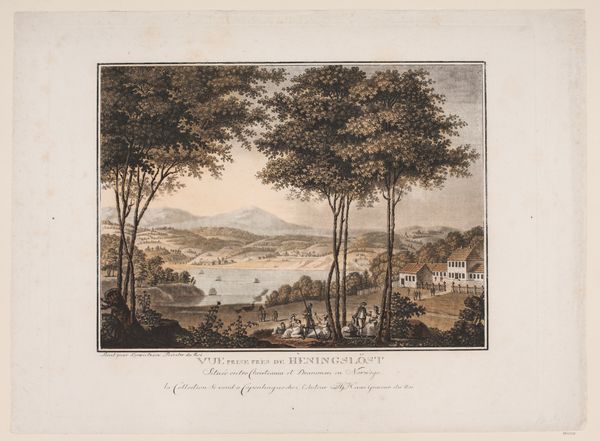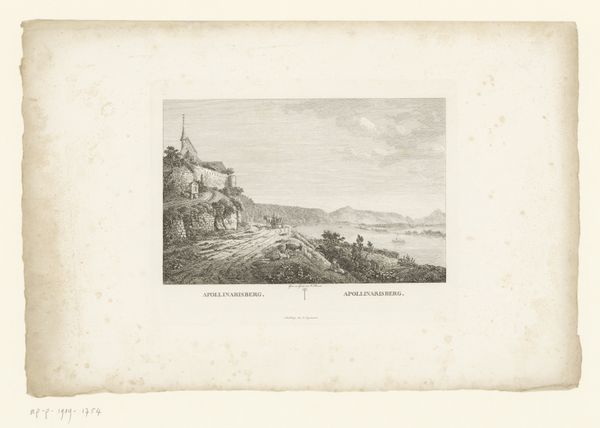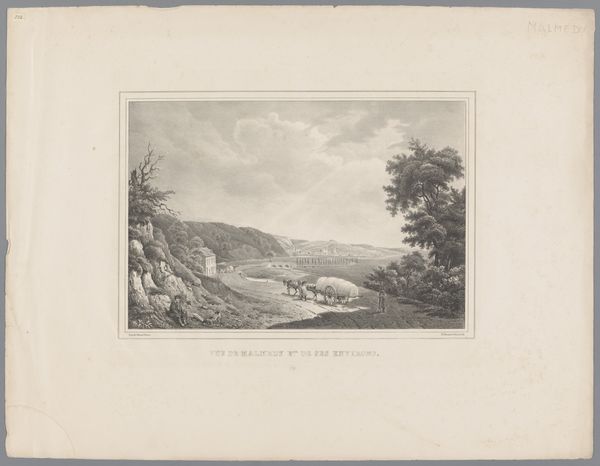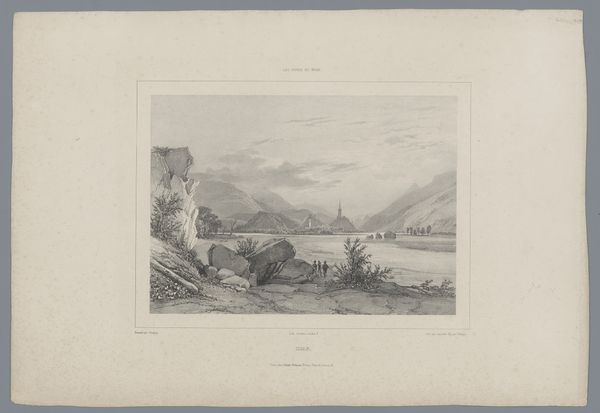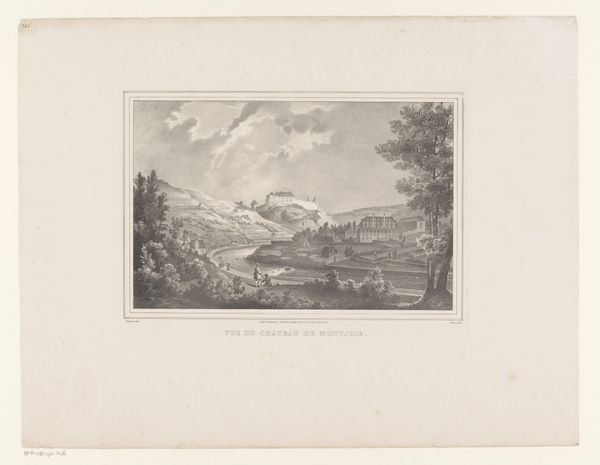
print, engraving
#
ink paper printed
# print
#
old engraving style
#
landscape
#
romanticism
#
cityscape
#
engraving
Dimensions: height 355 mm, width 542 mm
Copyright: Rijks Museum: Open Domain
This print, depicting Lyon’s Île Barbe, was made by Louis-Julien Jacottet using a technique called lithography. This is a printmaking process that relies on the chemical repulsion between oil and water. The image begins as a drawing made with a greasy crayon on a flat slab of limestone. The stone is then treated with acid, which fixes the drawing. When the surface is wet, ink adheres only to the drawn areas, which are then transferred to paper using a printing press. The resulting image has a soft, textured quality quite distinct from other printmaking techniques such as etching or engraving, which involve cutting into a metal plate. Lithography emerged in the late 18th century as a relatively inexpensive method of mass production for images. The technique democratized printmaking, enabling artists to reach wider audiences. Jacottet’s choice of lithography thus speaks to the growing commercialization of art in the 19th century. This print provides us not only with a picturesque scene, but also a glimpse into the changing landscape of artistic production.
Comments
No comments
Be the first to comment and join the conversation on the ultimate creative platform.
